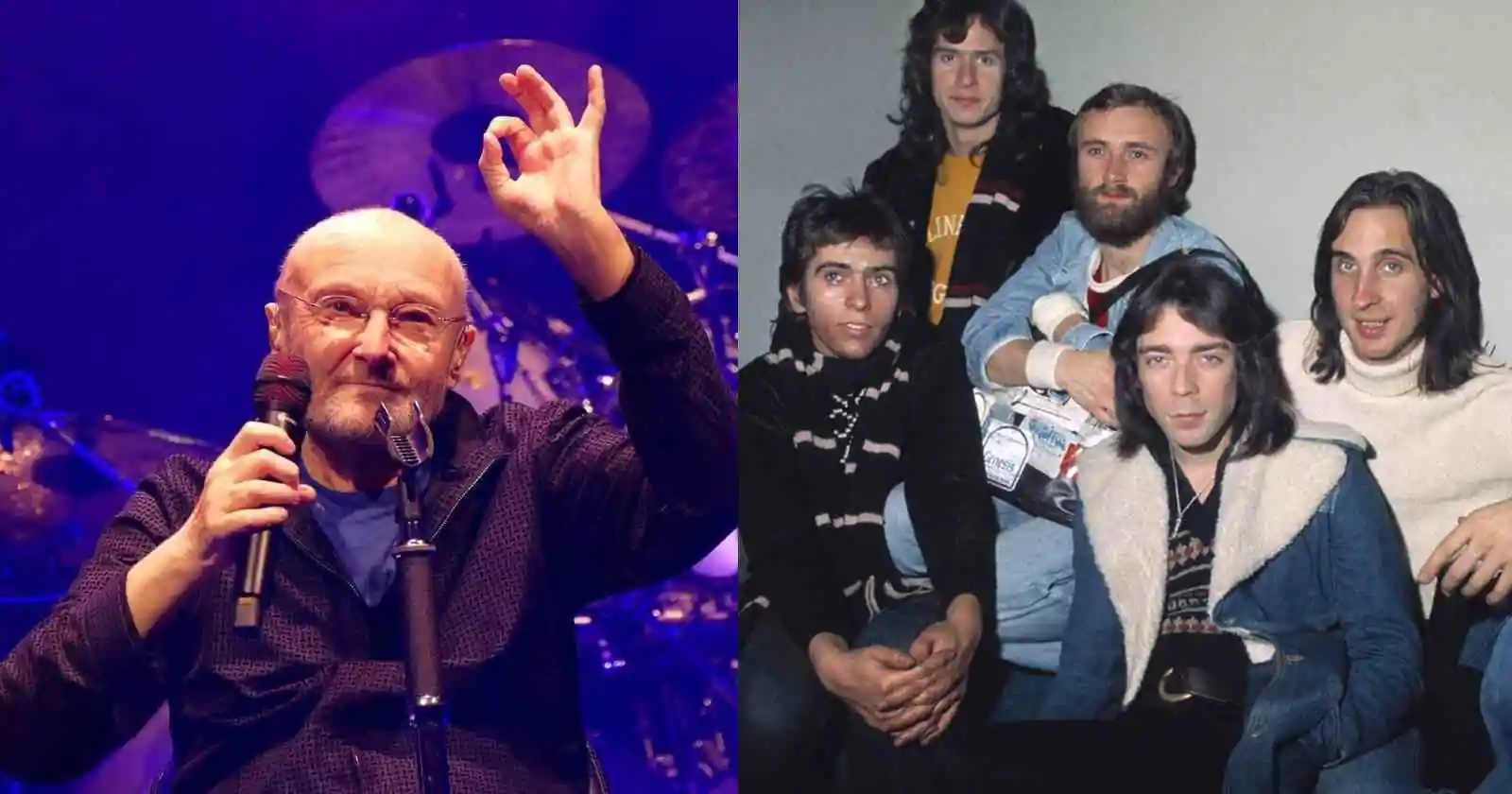The legendary British Progressive Rock band Genesis was formed in 1967, but Phil Collins only jonined them as the drummer in 1970, just in time to appear on their first successful studio album “Nursery Cryme” (1971).
For five years, Collins had the opportunity to focus mainly on the drums and experiment with the instrument in the complex and long songs the group was composing. But 1975 things changed when he had to become also their vocalist after Peter Gabriel left.
It was the beginning of the band’s shift to a more commercial sound mixed with all their background in Progressive Rock. Especially because of that change, the band became one of the best-selling of all time. Collins also had a very successsful solo career with countless global hits. But with all the success as a frontman, he never left the drums behind all that, he kept using the instrument to compose.
Over the decades he talked many times about the band and Rock and Roll Garage selected the 2 Genesis tracks that Phil Collins listed as favorites to play live in concert.
The 2 Genesis songs Phil Collins listed as favorites to play on drums
“Apocalypse In 9/8”
The last Genesis studio album with Phil Collins was “We Can’t Dance” (1991) but in 1996 when the musician officially left the band, Mike Rutherford and Tony Banks recruited the Scottish singer Ray Wilson. He was part of the group from 1996 to 2000 and they recorded the band’s final album “Calling All Stations”, released in 1997.
Even though Collins was no longer part of the band during that year, he talked about many of the group’s songs in an interview with Modern Drummer. He mentioned two tracks that were some of his favorite ones to perform live. One was “Apocalypse In 9/8”, that is part F of the 23 minute song “Supper’s Ready”. From the album “Foxtrot” (1972), it remains as their longest recorded song.
“This is one of my all-time favorite Genesis pieces. I used to love playing this one on the road, because I could go way out with it. I have some tapes of us performing it in concert from around this time that make this version sound simplistic. A great piece of music and great fun to play.”
“When I would play something like this piece, I would be singing the riff in my head while I was playing it. That allowed me to stretch out over the top of the meter. To get more of a rotating, circular motion going within the pattern. That’s probably why it felt good,” Phil Collins said.
It was the first Genesis album to chart in the United Kingdom, reaching position number 12. It also went to number 1 in Italy.
“Wot Gorilla”
In the same conversation with Modern Drummer magazine in 1997, Collins mentioned the track “Wot Gorilla” from the album “Wind & Wuthering” as one of his favorites to play on drums. That album was the second one that Collins played the drums and occupied the vocals.
“Oh yeah. ‘Wot Gorilla’ one of my favorites. I liked it so much that I had an arrangement done of it for my big band project. You should hear this tune with horns! I can always check how well my pedal is adjusted by playing this pattern.”
“If I can’t play it accurately, then I know there’s something wrong with the pedal. But I found that the best way for me to think about this pattern was as a continuous body motion. The cordination, for me, invovled getting my limbs to kind of move in a smooth motion. Thinking almost like you’re a well-oiled machine.”
“Of course, it would be very difficult to keep that relentless type of feel if I broke out of it to play a fill. That took some concentration,” Phil Collins said.
That album received many positive reviews from critics and helped on the band’s growing popularity, especially in the United States. It reached position number 7 in the United Kingdom charts and number 26 in the United States.
It was followed by an extensive tour, that marked the debut of Chester Thompson as their live drummer.

